What is sexuality?
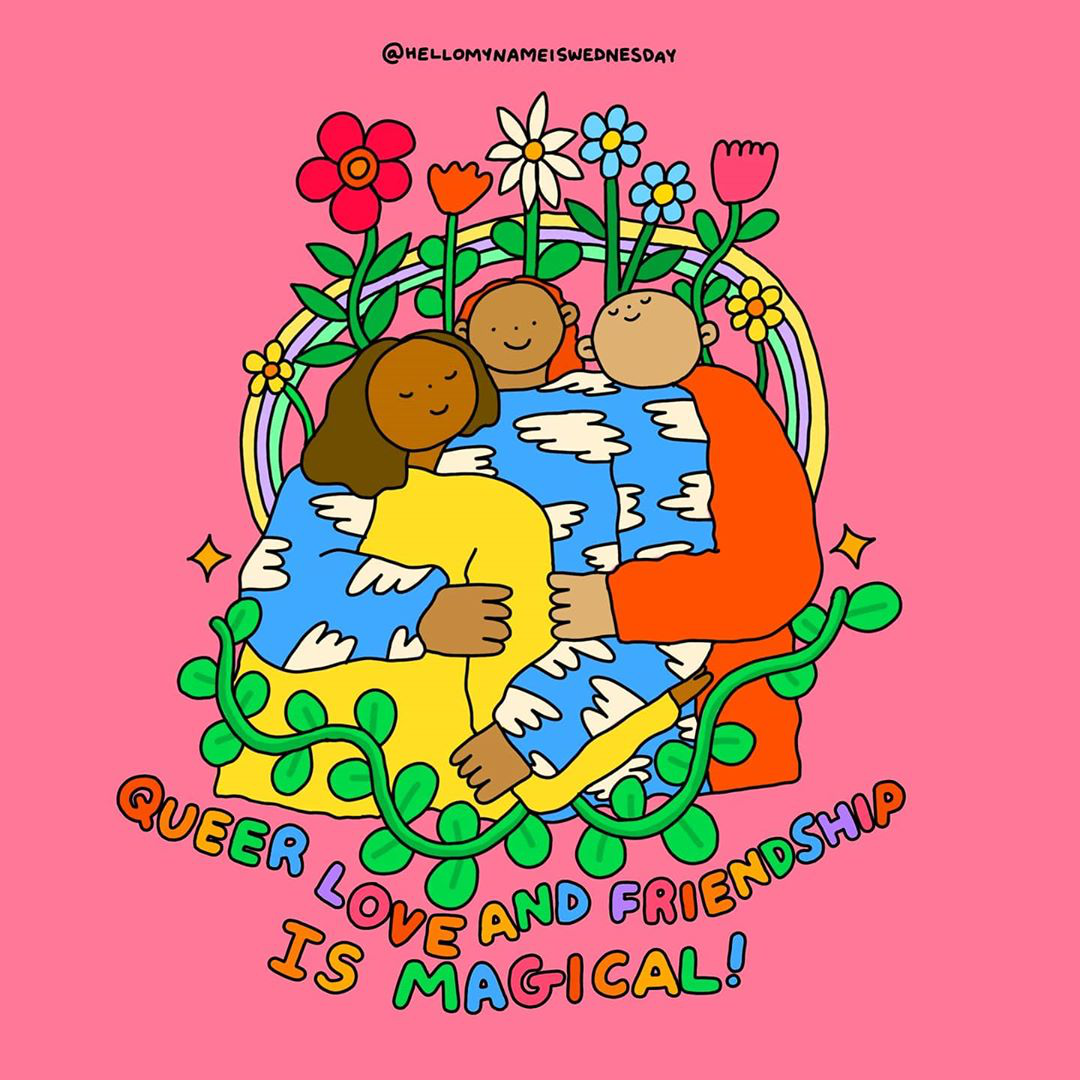
Artwork credit: @hellomynameiswednesday. On a pink background are three different people, one wearing a yellow jumper, another wearing a blue jumper with clouds on and the third with an orange jumper. They are all hugging each other. Behind the people is a yellow, purple and green stripped semi-circle. Above the people's heads are different flowers. Below the people is a green vine with text underneath. The text reads: 'Queer love and friendships is magical'.
Your sexuality is the way you describe sexual, emotional and physical feelings or attractions you have towards another person. You may be attracted to people of the same gender, or a different gender, or you might not experience sexual attraction at all. These are all things which make up your sexuality - it is about more than just who you have sex with.
It is important to remember that there is no ‘right’ or ‘wrong’ sexuality; it is simply about how you personally identify and experience attraction.
There are lots of different ways people may identify their sexuality:
-
ace/asexual
someone who experiences little or no sexual attraction to others, or interest in sexual relationships or behaviour. Someone who is asexual may still experience romantic attraction to others.
-
aro/aromantic
someone who experiences little or no romantic attraction to others, or interest in romantic behaviour. Someone who is aromantic may still experience sexual attraction to others.
-
bisexual/bi
main attraction towards more than one gender
-
gay
a person who is mostly attracted to people of the same gender
-
heterosexual/straight
someone whose main attraction is towards people of a different gender
-
lesbian
someone who identifies as female and is mostly attracted to others who identify as female.
-
pansexual/pan
a person who has feelings/attraction for people of all gender identities
-
queer
A term used to describe a wide range of gender identities and sexualities that are not heterosexual or cisgender. It can mean different things to different people.
-
demisexual
someone who experiences little or no sexual attraction until romantic feelings develop
For a fuller list of different terms, visit Stonewall.
You may describe your sexuality using one of these terms, or a different term, or none at all. It’s completely your choice and what feels right for you.
How might sexuality impact your mental health?
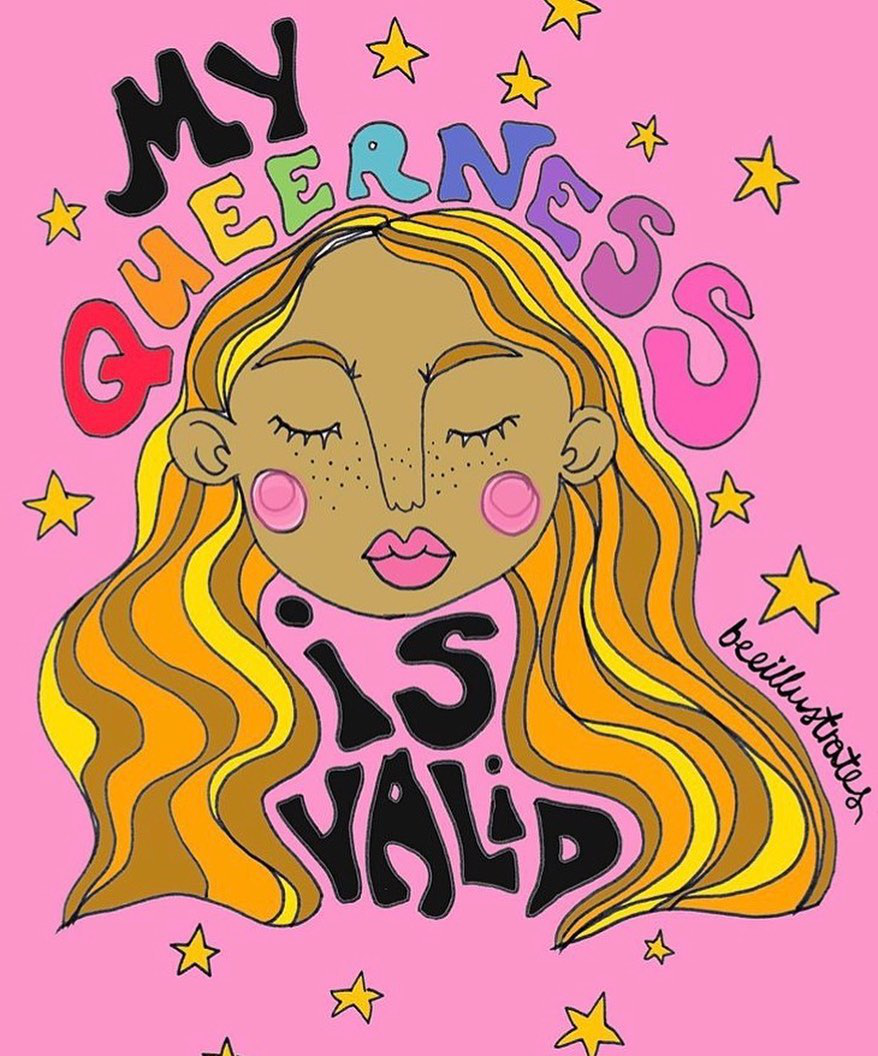
Artwork credit: @beeillustrates. On a pink background at the top of the image is the text: 'my queerness'. The word 'queerness is in rainbow colours. Underneath the text is a person with long blonde, brown and ginger hair. The figure has their eyes closed and wears pink blusher and pink lipstick. Underneath the figure the text reads: 'is valid'. The figure and the words are surrounded by yellow stars.
Having any particular sexual orientation does not mean you have a mental health problem. But the experiences you have because of your sexuality can impact your mental health. Sometimes, people are bullied, treated differently or badly because of their sexuality. You might be made to feel different from those around you, or might have friends or family who don’t understand or support your sexuality.
Society may treat you differently, not understand your sexuality, or not accept it. There may be places where you don’t feel safe or comfortable. These are all experiences or feelings that can leave you feeling upset, worried or isolated.
You may not have experienced these things directly yourself, but have witnessed or heard of people being treated badly because of their sexuality. Understandably, this might make you feel afraid of sharing your sexuality with others, especially if it’s for the first time.
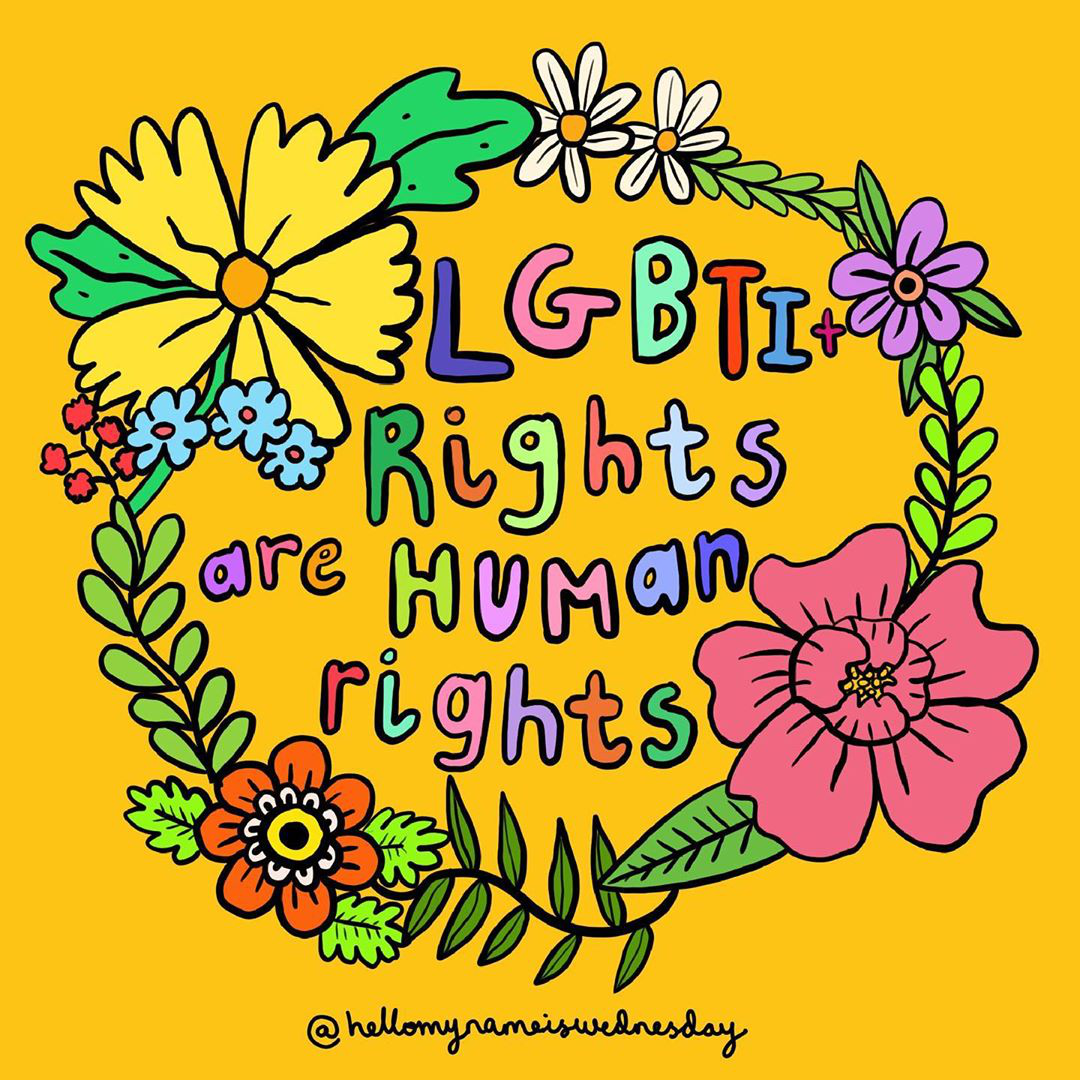
Artwork credit: @hellomynameiswednesday. On a yellow background is a circle of different size flowers that are yellow, pink, purple, white and orange with green vines and leaves. Inside the circle, the text in rainbow colours reads: 'LGBTI+ rights are human rights'.
You might experience:
- feeling different from other people, like you don’t fit in
- being stereotyped or put in a certain ‘box’
- prejudice about your sexuality
- bullying, or being treated differently by others
- not feeling safe to show affection to your partner in public
- feeling ‘invisible’ because you may not have role models or people around you who share similar feelings and experiences
- not having support from - or not being accepted by - those closest to you, like friends or family
- people mislabelling your sexuality
Remember: It is illegal for people to treat you differently because of your sexuality. Find out more about your rights under the Equality Act 2010
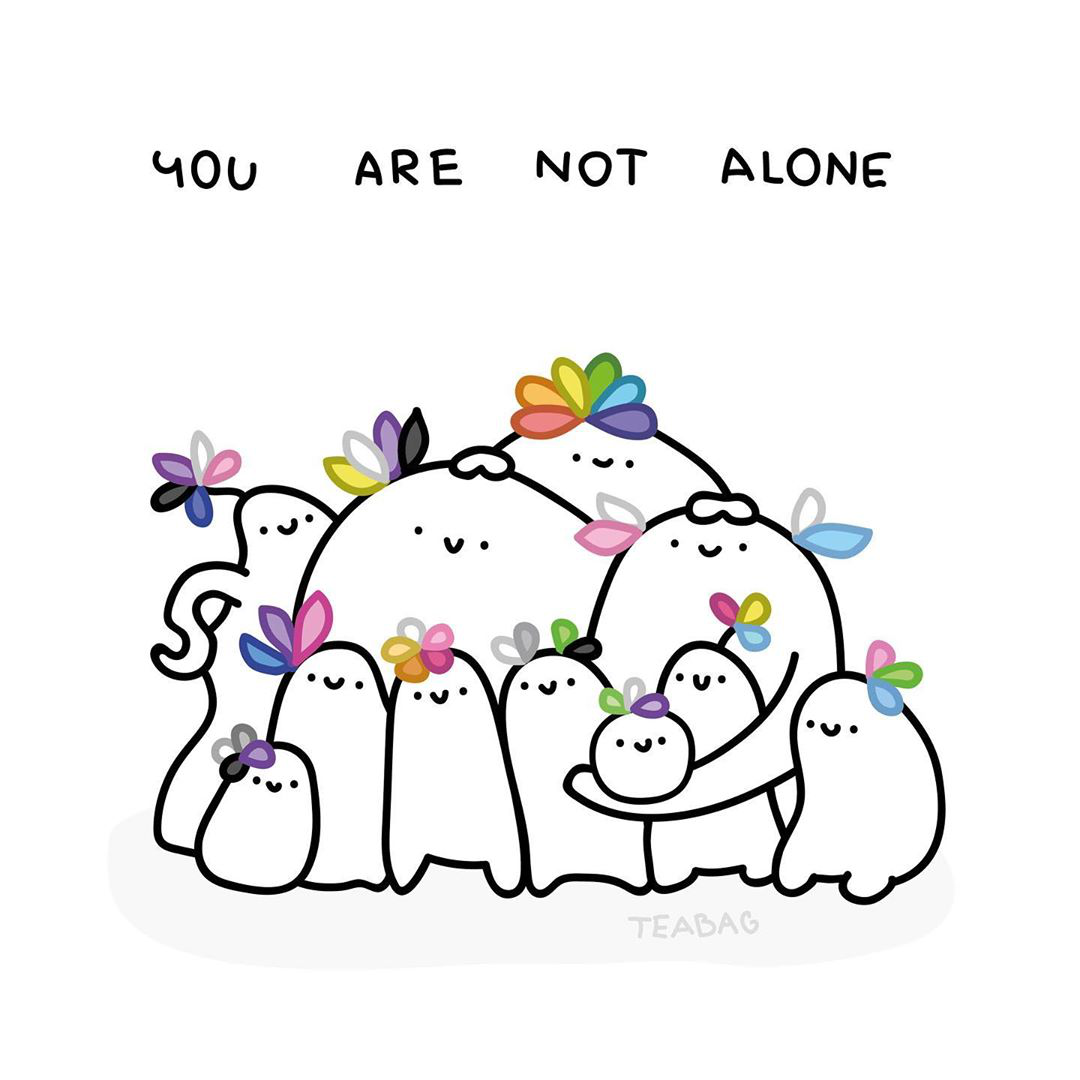
Artwork credit: @teabag_cartoon. On a white background at the top of the image, the text reads: 'you are not alone'. Underneath the text they are different size figures with coloured petals on top of their heads which represent LGBTQIA+ flag colours.
Having negative experiences, or seeing others being discriminated against or mistreated because of their sexuality on the news, in the media or in public, can be extremely upsetting and distressing. As a result you may feel:
- scared about coming out and what people might say or how they might react
- that you need to hide your sexuality
- under pressure to label your sexuality when you may not be sure or not want to
- confused about your sexuality
- that you need to change your sexuality and be someone you’re not
- self-conscious around others
- difficulty meeting new people as you might feel like you need to come out every time you meet someone new
- lonely and isolated
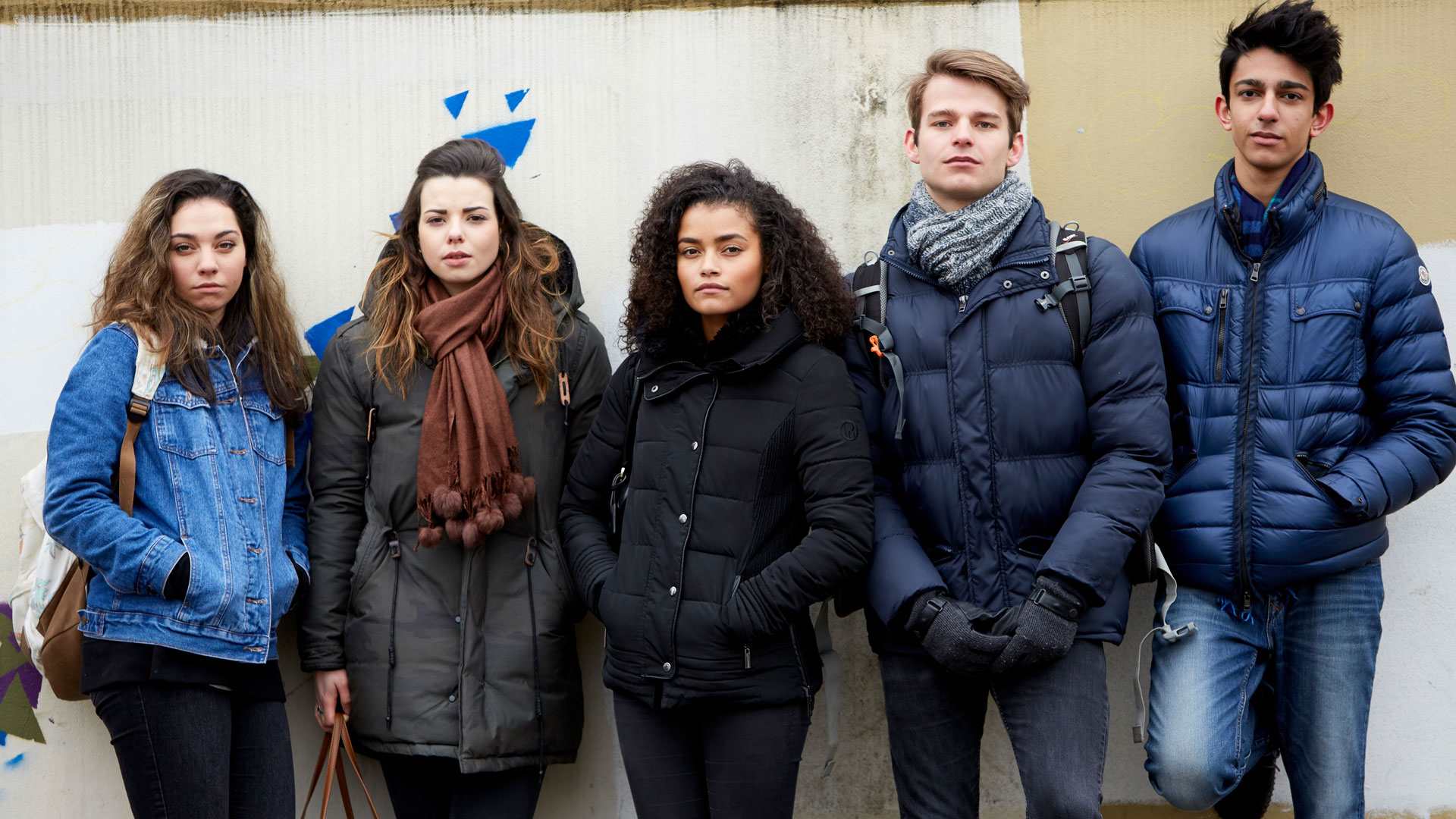
No one deserves to be treated differently
Whether you have these experiences one time, or on a regular basis, it can have an impact on your mental health and how you think and feel about yourself. You may find yourself feeling down, anxious or isolated. Constantly carrying these emotions can be exhausting, and you may have difficulty concentrating or trouble doing everyday tasks like eating or sleeping. But there are steps you can take to get the help and support you deserve.
No one deserves to be treated differently because of their sexuality, and you should be able to live freely and without fear. In recent years, society has come a long way in ensuring there is equality for LGBTQIA+ people with laws such as the Marriage (Same Sex Couples) Act. While there is still much more to be done, it can be helpful to remember there are people working hard every day to create a more equal society.
Even if you feel alone, support is not necessarily far away.
If you feel unsafe and you’re at risk
Here are things you can do if you feel at risk:
- report a Hate Crime
- text the YoungMinds Textline for free 24/7 support across the UK if you are experiencing a mental health crisis.
- call Childline for free to speak to someone about what's happening and how you're feeling.
- call 999 if you are in an emergency and there is risk to life (either your own or another person’s)
What you can do to look after your mental health
-
Talk
Talking to somebody you trust about how you’re feeling and what you’ve experienced can really help. You could talk to close friends, family, parents, a teacher you get on with, a counsellor or mentor. You might not know exactly what to say and that’s okay. Talking to someone can help you to understand how you feel, and helps people around you think about how they can support you.
-
Write it down
If you don’t feel comfortable talking to anyone or you’re not sure what you want to say, writing your thoughts down can help. You could also write down positive quotes or messages that help you feel good and stick them up in your living space so that you can look at them each day.
-
Find your ‘safe spaces’
Finding a ‘safe space’ where you can focus on your mental health can help you switch off and feel calm. This could be a local LGBTQIA+ group in your community, at school, or online. Or your ‘safe space’ could be a hobby that you enjoy doing, a favourite show you enjoy watching, or a chat with a friend who makes you feel safe.
-
Create boundaries to prioritise your mental health
Sometimes conversations can be uncomfortable. If you start to feel uncomfortable or trapped in a situation, simply walking away can help create a boundary for you. If you can, remove yourself from whoever is upsetting you so that you can take a moment to breathe and calm your thoughts.
-
Find role models
There are lots of people, whether they are people you know or influencers online, that can help you to feel positive and empowered. It can help to see other people like you who are going through a similar journey.
-
Clean your social media feed
If you are seeing things online that make you feel upset or pressured, remember you can mute, block or unfollow accounts that bring you down. Taking breaks from social media can really help too – so try deleting your apps for a weekend and seeing if it helps. For more tips on how to have positive time online take a look at our social media and mental health page.
Some people may also like to write down their feelings in a journal or as a letter and give that to someone they trust.
Talking about your sexuality with others
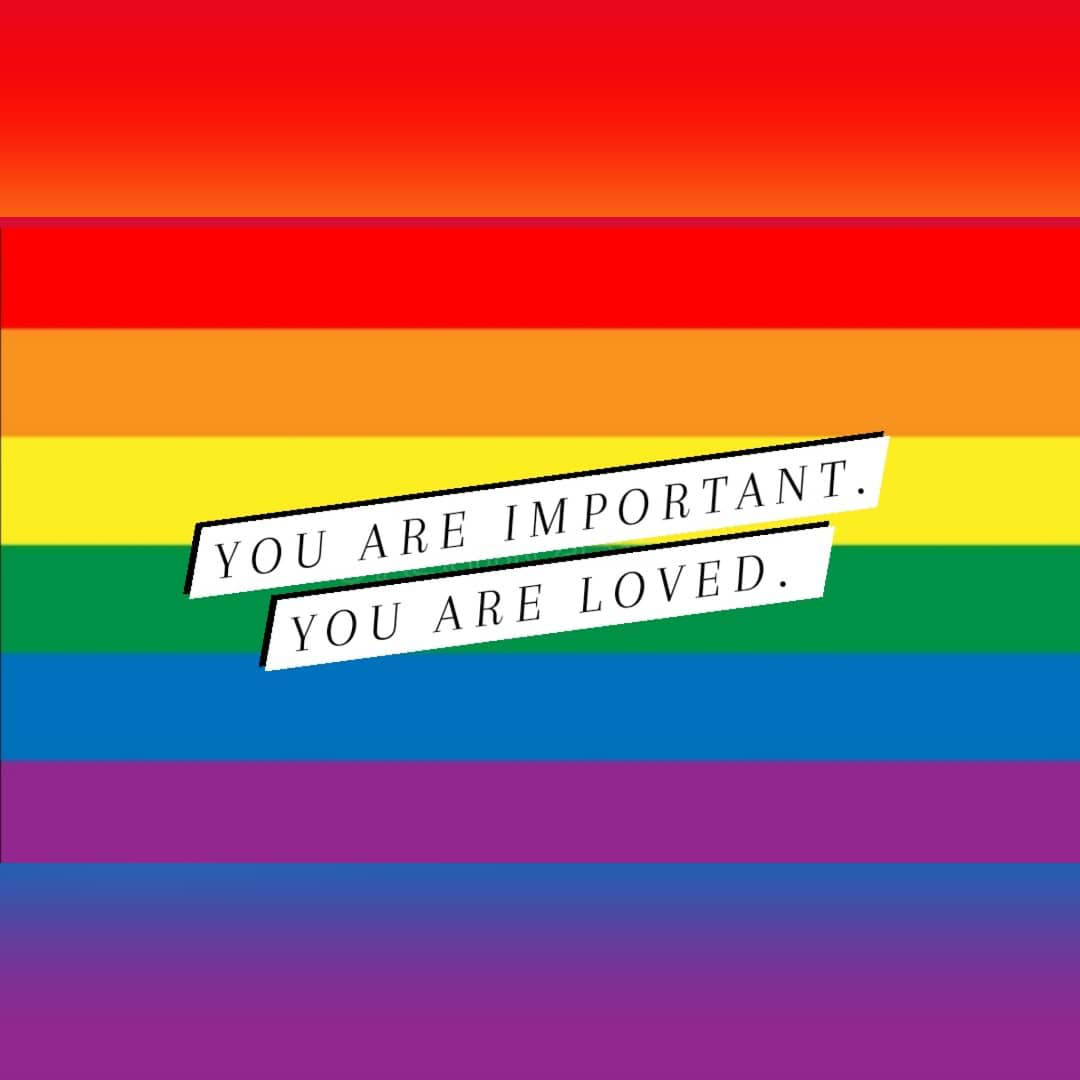
A rainbow-striped background with text highlighted in a white box. The text reads: 'You are important, you are loved'.
Sharing your sexuality with others for the first time is often called ‘coming out’. It can feel scary or daunting to talk about your sexuality for the first time with someone, especially if you aren’t sure what they’ll say or how they’ll react.
If you’re nervous about how someone might respond, you could try asking them for their thoughts on an LGBTQIA+ topic first. This might help you understand their thoughts better, and get a feeling for whether they’re likely to be supportive.
Before you have the conversation, consider what your boundaries are, e.g. how much you do and don’t want to share. Writing down what you are going to say first can also help if you are feeling nervous. You might want to consider an ‘exit plan’ too – a way to remove yourself from the conversation if you start to feel uncomfortable or unsafe.
What if I don't want to come out?
Some people find it really empowering to speak about their sexuality, whereas others might not want to. Sometimes, you may feel pressure to ‘come out’, and feel that others have a right to know your sexuality when you don’t want to share or you’re not ready. Or, it may not be safe for you to come out if you’re not sure about how someone will react.
Remember, it’s okay not to share your sexuality if you don’t want to; you have no obligation to and it’s up to you who you talk to. Whether you’re inviting people to know about your sexuality or not, everyone’s experience is different, and they are all valid.
It’s okay if people don’t understand; it just means you can enlighten and teach them.
Supporting a friend with their sexuality
-
be visible
in your support for the LGBTIQA+ community. This is called being an ally
-
learning as much as you can
about the experiences/challenges faced by the LGBTIQA+ community
-
join part of a movement for change.
Many organisations campaign for LGBTIQA+ equality and you can help them campaign and spread the word
-
Speak up
Call out discrimination when you see/hear it
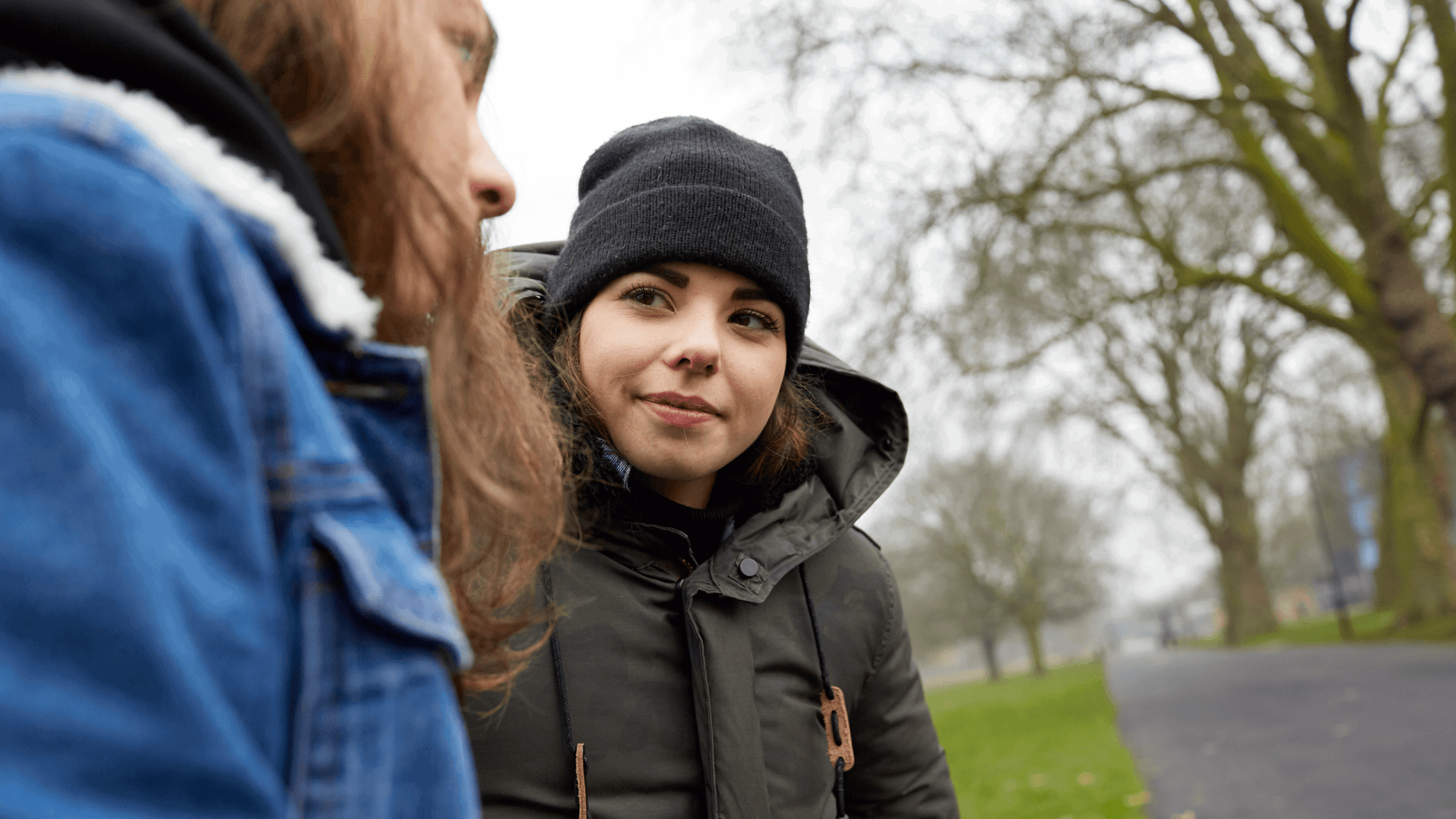
My personal experience, in all honesty, has not been straightforward. There has been a lot of questioning in my life around my sexuality, and I’m still not sure.
I worry that not knowing where I belong within the LGBTQ+ community means that I won’t be accepted. This worries me because it doesn’t leave many places where I feel like I belong, which can affect my mood.
Get help now
Where to get help
See below for a list of organisations and helpline services that have information to support you.
-
MindOut
A mental health service run by and for lesbians, gay, bisexual, trans and queer people with experience of mental health issues.
Instant web chat service also available (hours vary).
Runs in-person peer support groups in Brighton.
-
Galop
A dedicated LGBT+ anti-violence charity.
Gives advice and support to people who have experienced biphobia, homophobia, transphobia, sexual violence or domestic abuse.
- Opening times:
- 10am - 5pm, Monday - Friday (Open until 8pm on Wednesdays and Thursdays)
-
Albert Kennedy Trust
Supports LGBTQ+ young people aged 16-25 in the UK who are facing or experiencing homelessness, or living in a hostile environment.
You can refer yourself online to arrange a face-to-face appointment with a member of staff in their Bristol, London, Manchester or Newcastle centres.
Offers free webchat service.
-
Switchboard
Offers confidential support and advice to members of the LGBT+ community.
Free webchat service also available.
- Opening times:
- 10am - 10pm, 365 days a year
-
The Mix
Offers support to anyone under 25 about anything that’s troubling them.
Email support available via their online contact form.
Free 1-2-1 webchat service available.
Free short-term counselling service available.
- Opening times:
- 3pm - 12am, seven days a week
-
Mermaids
Supports and provides information for transgender and gender-diverse young people (up to and including the age of 19).
Free webchat service available.
- Opening times:
- 9am - 9pm, Monday - Friday
More on looking after yourself
More tips, information, advice and real stories on looking after yourself.


